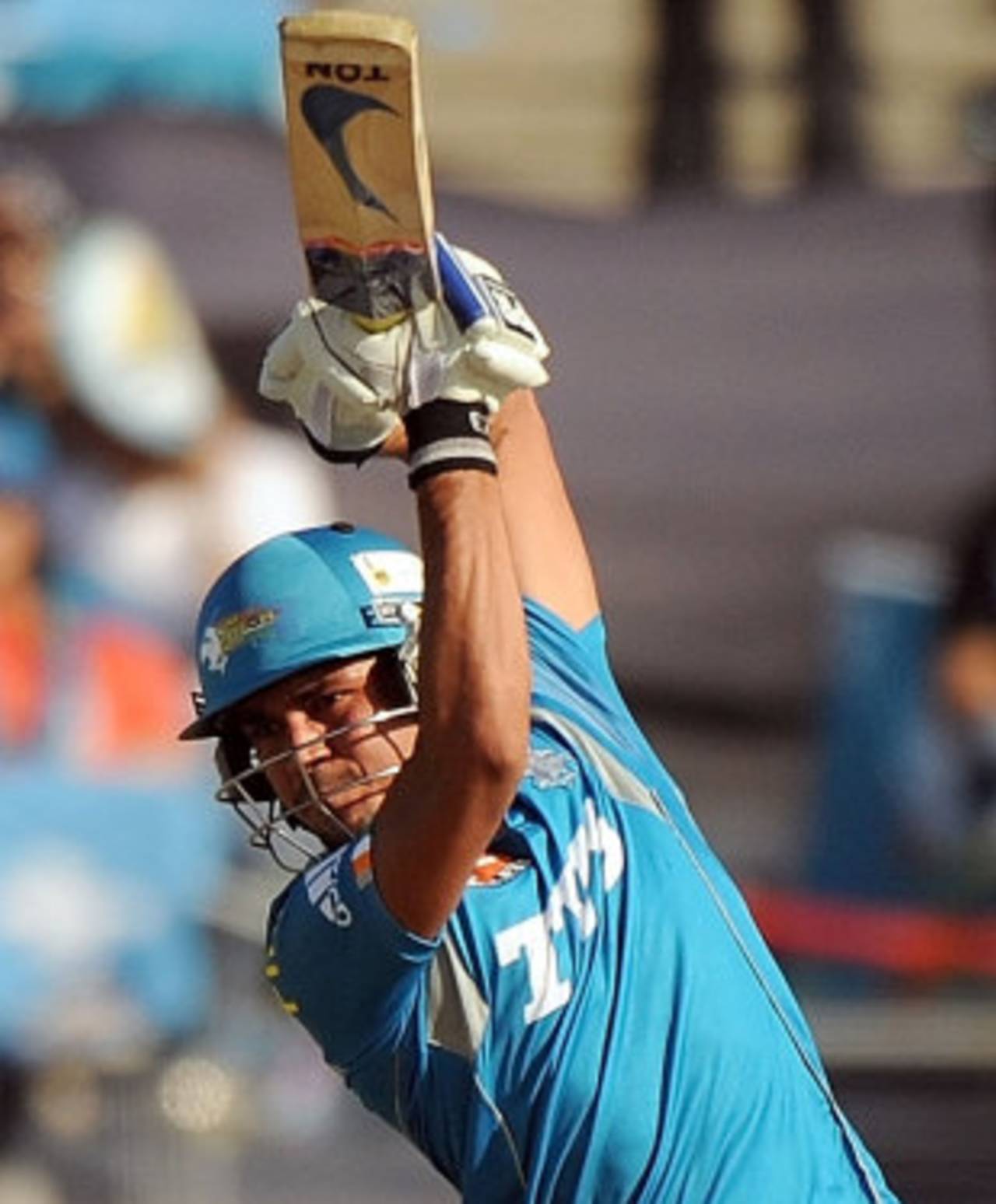The India TV "sting" this week, where players were caught on camera allegedly attempting to negotiate more lucrative IPL deals for themselves, was, I'm afraid, tame and misleading. There were some issues there that deserved airing, but they were concealed by the theatrical, incessant self-promotion of the TV channel in question. Cricket needs to be careful of those who write film-style dialogues and those who over-dramatise.
And so, in a typically Pavlovian response, far too many people are screaming match-fixing. Or its cousin, spot-fixing. The greater issue in this sting - if you were patient enough to get to it - was the realisation that many players get paid more than they are entitled to. And that's because there is a ceiling on how much uncapped domestic players can earn, there are some naughty money transfers going on.
It is a practice that has been whispered about, occasionally loudly talked about, for a long time now; especially in the days before IPL 4. With a limited number of capped Indian players in the auction, there was a rush to find the best of the rest, and strictly speaking, if one franchise couldn't pay more than another, very few players had strong enough reasons to move. But then, there are many things that are whispered about on the circuit, and just because something is whispered about, it need not necessarily be true. More important, it cannot be proved to be true.
And so the issue of players being paid more than the contracted amount remained a whisper. Now players are saying it happens. The BCCI can look at it two ways. It can disbelieve the players or it can accept what they are saying and launch a serious investigation (which has
been done but I do not know what its scope is) though it is very unlikely the board would not have known about it in the first place.
It will be unfortunate if only the players are investigated because you cannot accept money unless someone offers it. If the players are saying they were offered extra money, then it means the franchises were violating IPL rules too. If players are to be punished for accepting money they shouldn't have from franchises, then the franchises should be punished too. In his recommendation in 2010, on the
Ravindra Jadeja case, Arun Jaitley suggested as much, and I think his legal acumen and stature can be used to strengthen procedures in the IPL.
Eventually this league belongs as much to the BCCI as to the franchise holders, and if it has to become one of the great sports leagues in the world (and it should not consider a smaller objective), they need to work together to strengthen it. And so, this cannot be buried, it has to be taken as seriously as a corporation would a whistle-blower.
To be fair, the basic principle behind the founding of the IPL was sound: that each franchise has equal resources available to it and so has an equal chance of winning the title. If the transfer of uncapped players favours richer franchises, then the principle on which the IPL was conceived is threatened. And so to take it to the next stage it needs stronger processes, but it needs more openness, for the more transparent an organisation is, the less it can hide wrongdoing. It is also something the fans are entitled to, because without them there is no revenue.
Now to the other danger, which too was known, but which the sting has highlighted. Indian cricket, like the Mumbai film industry, lures many towards it. Some come with the dream of making it big and playing for India for ten or 15 years; some others quickly fall away and seek every opportunity to make a buck in the time they have. It is not wrong but it exposes them to all manner of people. As there are fine and respectable people, there are maggots, too, who prey on the insecurity of young cricketers and lure them onto the path that can only lead to fixing and other crimes. And match-fixing, or spot-fixing, remains the single greatest threat to the continued success of the IPL. This sting, if the videos were ethically edited, confirms that day might already be upon us.
The people who carried out the sting exploited this vulnerability among young cricketers. The only way to protect them from more such vultures is to educate them and provide harsh deterrents. Ironically, though, such stings seem to have become the only way of exposing loopholes. Maybe a law passed by the government making match-fixing a criminal offence will help.
In many industries, corporations are free to run their business as they want but are answerable to a higher entity. For its own good, the IPL needs to have a higher entity, one that seeks no political or monetary gain, to question its functioning. This entity could be self-appointed, and there are many champions of corporate governance with a track record of integrity who will be happy to serve on it. The IPL will thus become a stronger, more rigorous organisation, and in becoming so, will benefit Indian cricket enormously.
Harsha Bhogle is contracted to the IPL. He also commentates on other cricket, and is a television presenter and writer. His Twitter feed is here
